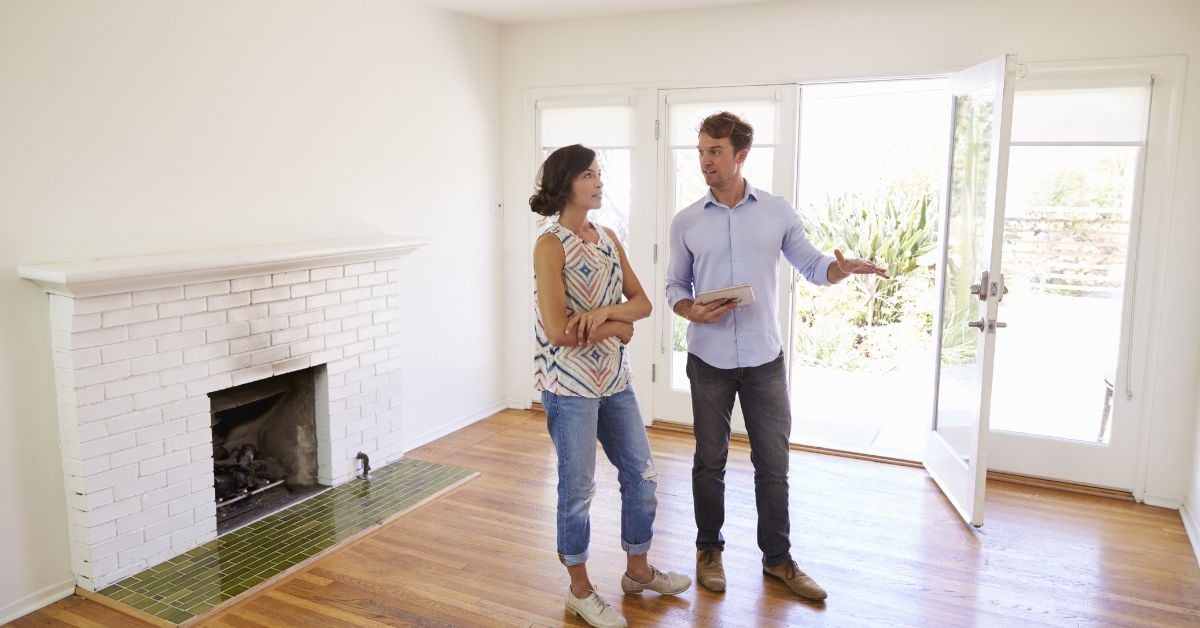Understanding the Buying Process

Are you looking to buy real estate but are finding the process overwhelming? Here is a simple view of the key steps you need to understand to ensure your buying journey is as smooth as possible - from finding a home to, working out finance, getting a building inspection and making an offer.
The process of buying a house can be equal parts exciting and nerve-wracking. There is the excitement of finding your dream home and also the hands-on nature of the buying process and its many different facets.
Rather than letting terms like pre-contract and pre-settlement cause confusion and pause, take the time to research the buying process. This way, as a buyer, you know what you’re entitled to. All of which helps you buy and settle on the home of your dreams.
1. Searching for properties
The buying process starts as soon as you log on to a real estate website and start browsing through listings. To ensure you will make the best decisions down the track, you must be as clear as you can be during the searching phase.
This means determining if you would like to buy an apartment, townhouse or traditional home. Having this clarity makes it easier to define a workable budget. Importantly, it also allows you to narrow down the suburbs you like or dislike and can afford.
By taking the time to research different housing types and suburbs, you can get the full picture of where you want to live and how you want to live. All of this makes finding open houses and auctions to attend way easier.
2. Make sure you can buy
Once you’ve made some hard decisions surrounding housing types and location, it is time to think about your financial position. During this stage of the buying process, it is important to be as transparent as possible.
It is wise to consult with a lender or mortgage broker to help you make financially sound choices. They will be able to tell you how much you can afford to borrow in a process that is known as pre-approval. While pre-approval is not a guarantee that your home loan application will be approved, it acts as a guide to show that the application fits lending criteria.
3. Ways to buy
There are different ways to buy real estate. Most properties for sale are listed as either private sale or for auction. Understanding the difference between the two can greatly impact your property buying process.
Private sale
A private sale in real estate is when a property is sold directly from buyer to seller without an auction or public bidding process. A property being sold by private treaty or private sale will have an asking price or an offers-over price. Negotiations are conducted between the buyer and seller or their respective agents. This way of buying a house allows for more flexible negotiations so that you can potentially settle on a price that fits your budget.
Auction
A property that is sold at auction won’t have a fixed purchase price. Instead, the property will be sold to the highest bidder on auction day - provided the price has met the reserve set by the seller. At an auction, the highest bidder will typically have the first right to negotiate a purchase with the seller after the auction. In this scenario, it’s important to have a set limit on how much you’re willing to pay for the property and stick to this limit to avoid paying more than you can afford.
4. Property inspections
To ensure the property you’re interested in meets your expectations, it’s a great idea to attend an open house. Open-home inspections allow potential buyers to physically walk through and inspect the home in person. Here you can get a feel for the layout and size of the home and look out for some key features of the property, including:
- The level of natural light
- The neighbourhood and how busy it is
- The property’s orientation
- The general wear and tear of the property
It’s also a perfect opportunity to ask the agent any questions you may have about the property including the reason for selling, the age of the property, when it was last renovated, and if there have been any offers yet.
Download our Open House Inspection Checklist.
5. The real estate buying process
Once you’ve saved for a house deposit, worked out how much you can afford to borrow, and inspected potential properties, you’re in a strong position to make an offer or bid at auction. The following home buying steps will be required once your offer is accepted.
What is a pre-contract?
After establishing a budget and gaining pre-approval, the next step is to enter the pre-contract phase.
To navigate the various pre-contract processes, it is always best to have the help of a solicitor or financial advisor. A dedicated professional can assist and provide you with advice when it comes to purchasing.
This stage is when you can negotiate contract points such as price, deposit and settlement date. It is also the time to specify the conditions of the contract. These can include ensuring finance approval by a specific date or outlining work to be done by the seller prior to settlement.
What is pre-settlement?
The process of pre-settlement involves many different aspects, making it an essential part of buying a house. During this period, you should sign any bank loan documents and employ a solicitor to ensure that transfer documentation is in order.
Pre-settlement also involves a pre-settlement inspection. With settlement times ranging anywhere between 30 and 90 days, there is room for error. Therefore, rather than assuming that the property is in the exact same condition as when you first inspected it, conduct a pre-settlement inspection. You will generally conduct this inspection in the week leading up to settlement. This procedure is vitally important for buyers.
When conducting a pre-settlement inspection, look for signs of any significant damage as well as clean and tidy interior and exterior spaces. This way, you can make sure that everything is in good working order before transferring the final payment.
What happens on settlement day
When researching the different phases of how to buy property, the most exciting stage for buyers is settlement day. On the agreed settlement date, your solicitor will transfer the money to the seller in exchange for the deeds to the property.
Once the transfer of documents is completed, the loan money is paid and the deposit is released. The real estate agent will then provide you with the keys to the property, and you are free to take possession of your new home.
Stamp duty
Stamp duty is a one-off state government property transfer tax that you typically need to pay within 30 days of settlement. If you’re a first home buyer in NSW, you may be exempt from stamp duty or be entitled to a concession.
You can check the stamp duty rules for your state by visiting the website of your state’s revenue office.
Buying a home with LJ Hooker
How to buy a house? While exciting, the home buying process can feel overwhelming. That’s where LJ Hooker can help.
Our team at LJ Hooker offers you experience alongside excellent market knowledge. By guiding you through the different stages and aspects of buying a property, we can help make it as smooth as possible.
Voted Australia’s number one real estate brand, a little help from the team at LJ Hooker can be invaluable when it comes to answering your question and finding a dream home. Connect with an LJ Hooker agent today to start your home buying process today.
DISCLAIMER - The information provided is for guidance and informational purposes only and does not replace independent business, legal and financial advice which we strongly recommend. Whilst the information is considered true and correct at the date of publication, changes in circumstances after the time of publication may impact the accuracy of the information provided. LJ Hooker will not accept responsibility or liability for any reliance on the blog information, including but not limited to, the accuracy, currency or completeness of any information or links.
Share


